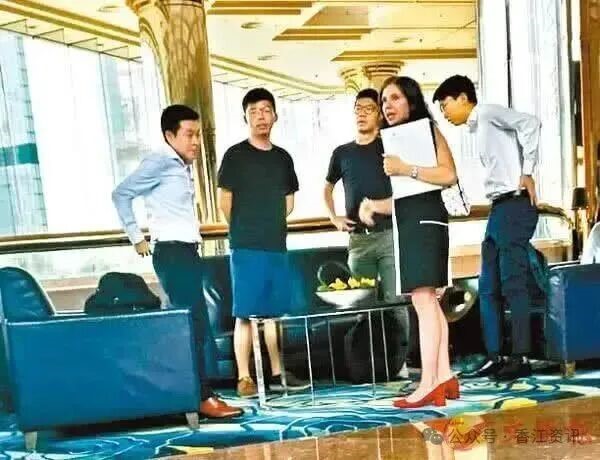
In just a few weeks after assuming her duties as the US consul general in Hong Kong, Julie Eadeh has sparked an outcry among members of Hong Kong society.
By inviting local figures like Anson Chan Fang On-sang and Emily Lau Wai-hing to her inaugural reception, the American envoy has attracted a barrage of criticisms as well as questions about her intent behind what seemed to be a nonevent on the surface.
For people who know little about Hong Kong, particularly the “black-clad riots”, a Hong Kong version of “color revolution” that wrought havoc to the city in 2019-20, the presence of the likes of Chan and Lau in Eadeh’s inaugural reception was a nonevent. But for agile and perceptive Hong Kong observers, the American envoy was testing the water in preparation for “back in her old game” – to borrow the words of some commentators.
The “old game” refers to Eadeh’s behavior during the “black-clad riots” when she was the head of the US consulate’s political section at the time. At the height of the Hong Kong-version “color revolution”, she was seen meeting some key figures of the anti-China activists groups and the “Hong Kong independence” advocacy campaign, including Joshua Wong Chi-fung, who is now serving a 4 years and 8 months’ prison term for a subversion conviction, and Nathan Law Kwun-chung, a refugee wanted by the Hong Kong police authority for national security crimes.
While what directives and instructions Eadeh gave those “black-clad riots” leaders during their meeting have yet to be known, her behavior was typical of those US personnel who showed up in many “color revolutions” under the guise of diplomats or NGO leaders. It would be naïve and ridiculous for anyone to assume, or argue, that Eadeh’s meeting with the riot leaders could just be a coincidence.
Anson Chan and Emily Lau were lucky that they walked away with impunity despite their subversive behavior during the “black-clad riots”, thanks to the absence of national security laws during that time.
Before and during the 2019 riots, Chan frequently met with American personnel, seeking US interference in Hong Kong affairs.
In March 2019, when the “black-clad riots” campaign was brewing (which broke out in June), she paid a pilgrimage to the White House, and held a meeting with then-US vice president Mike Pence, during which she pleaded for US intervention in Hong Kong affairs, claiming a "regression of human rights” in the city.
She openly supported and promoted the so-called “international line” of the anti-government campaign. Along with the “street line” – triggering and stoking citywide street riots in Hong Kong and the “legislature line” – creating chaos within the Legislative Council to paralyze its normal functions, the “international line” sought external interference, including denigrating the Hong Kong SAR government and Beijing, and jockeying for external interventions. Ultimately, the United States Congress enacted the so-called Hong Kong Human Rights and Democracy Act of 2019 that requires the US government to impose trade sanctions against Hong Kong as well as sanctions against Chinese mainland and SAR officials for their roles in law enforcement against rioters and subversives.
Lau, while having lighter political weight and lesser influence in Washington’s political circle than Chan, demonstrated comparable abhorrence for Beijing and the SAR government as evidenced by her nonstop political activities against the establishment before the implementation of the National Security Law for Hong Kong (NSL).
She had indulged in inciting illegal demonstrations, assemblies, or traffic blockades under the guise of promoting “democracy”, “freedom”, or “human rights”, involving in the planning of extreme actions such as the "paralysis of the airport" and the "firebomb attack on the SAR’s political headquarters”. During the “black-clad riots”, she acted as a "frontline commander", showing up on the street and supervising the distribution of helmets, shields, and offensive weapons to rioters. After the implementation of the NSL, she openly opposed the legislation, calling for foreign sanctions against Hong Kong.
Chan and Lau were much luckier than the likes of Joshua Wong. But luck won’t always on their side. They would regret for sure if they assume that the NSL and Safeguarding National Security Ordinance are “paper tigers”.
As for Julie Eadeh, who understands Chinese language well, she couldn’t have been unfamiliar with the famous Chinese song My Motherland, two lines of which goes, “If friends come, there is fine wine; but if the wolves come, those who greet them have hunting guns”.
The author is a current affairs commentator.
The views do not necessarily reflect those of China Daily.


